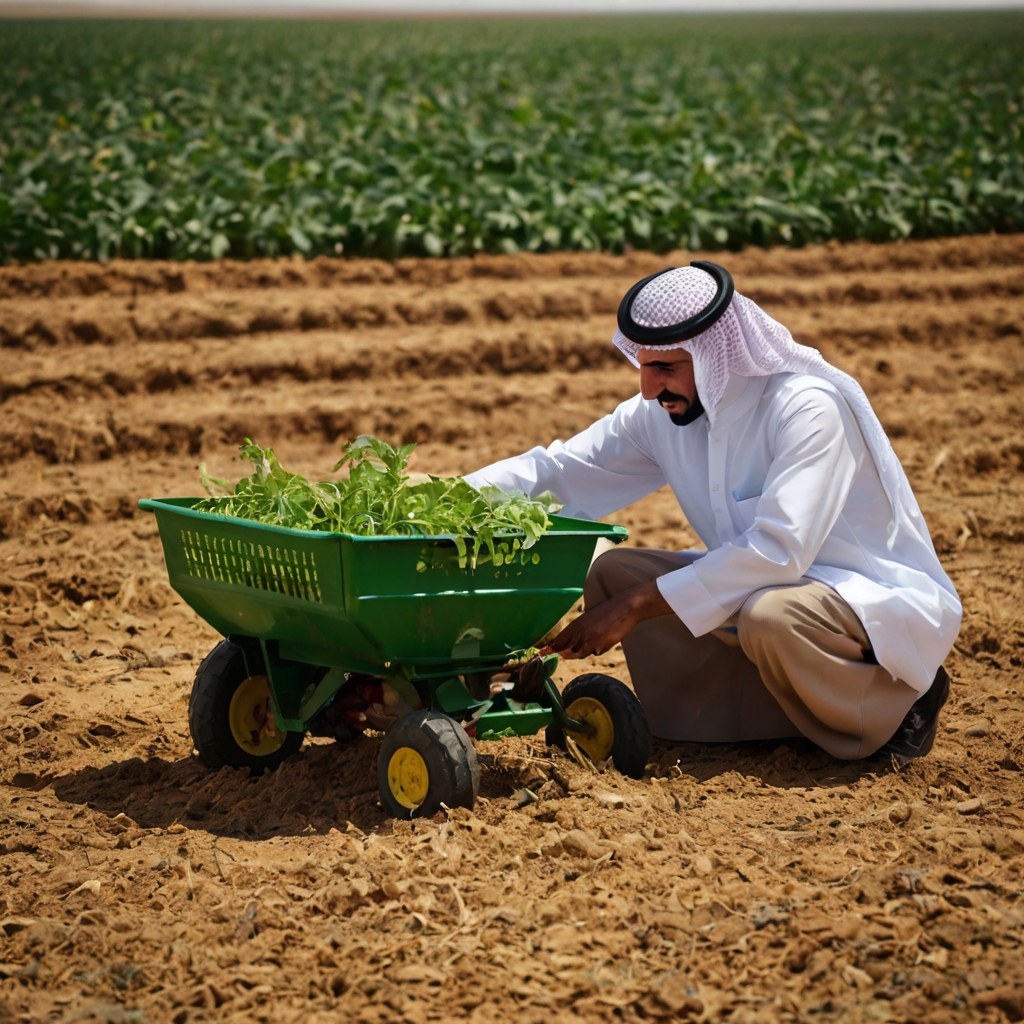Saudi Arabia, historically known for its vast oil reserves, is increasingly turning its focus toward agriculture as part of its ambitious Vision 2030 plan. As the Kingdom aims to diversify its economy and reduce its dependence on oil, agriculture has emerged as a key sector for long-term growth and sustainability. In 2024, Saudi Arabia’s agricultural Market is undergoing significant transformation, driven by technological innovation, government support, and a renewed focus on food security. The efforts to catalyze agricultural development are expected to reshape the industry and establish a more resilient and sustainable agricultural framework.
Government Initiatives Driving Growth
At the heart of Saudi Arabia’s agricultural transformation is the Vision 2030 plan, which aims to diversify the Kingdom’s economy and reduce its reliance on oil exports. The government has identified agriculture as a critical component for achieving self-sufficiency in food production and ensuring long-term food security. To support this, the Saudi government is introducing policies and investing in initiatives that encourage both domestic and foreign investment in the sector.
Entities like the Saudi Agricultural and Livestock Investment Company (SALIC) are helping to boost food production while minimizing the risks associated with food imports. The National Center for Livestock Development and other state-backed organizations are also providing support to local farmers, particularly in areas related to livestock farming and dairy production. These strategic investments are expected to drive the growth of agriculture in Saudi Arabia in 2024 and beyond.
Technological Innovations in Agriculture
Innovation is at the forefront of Saudi Arabia’s agricultural revolution. With its harsh climate and limited arable land, the Kingdom has turned to advanced farming techniques to overcome its environmental challenges. Technologies like vertical farming, hydroponics, and aquaponics are becoming increasingly popular. These methods allow for more efficient use of water, which is a crucial resource in a country where water scarcity is a major concern.
Additionally, the Kingdom is embracing precision agriculture, which uses data-driven approaches to optimize crop yield, reduce waste, and increase productivity. Drones, satellite imaging, and IoT devices are being utilized to monitor soil health, track weather patterns, and manage irrigation. This shift towards high-tech farming not only improves sustainability but also increases the overall efficiency of the agricultural sector.
Sustainability and Water Management
One of the most pressing challenges for Saudi agriculture is water scarcity. As one of the driest countries in the world, efficient water management is critical to the future of agriculture in the Kingdom. The government has placed a strong emphasis on sustainable farming practices that use less water. Investments in desalination plants, water recycling, and drip irrigation systems are helping to address these issues.
Furthermore, the Kingdom is exploring drought-resistant crops and more efficient irrigation technologies to ensure a steady food supply in the face of extreme weather conditions. These efforts are pivotal in catalyzing the agricultural sector and ensuring its resilience in the long term.
Rising Domestic Demand and Consumer Preferences
Another factor driving the growth of agriculture in Saudi Arabia is the changing preferences of local consumers. As the demand for fresh, locally produced food rises, Saudi farmers are diversifying their crops to meet these needs. There is a growing interest in organic produce and healthier food options, prompting farmers to adopt more sustainable and environmentally friendly farming practices.
For More Info: – https://www.gmiresearch.com/report/saudi-arabia-agriculture-market/
Conclusion
In 2024, Saudi Arabia’s agriculture sector is undergoing a dramatic transformation, fueled by government support, technological innovation, and a growing demand for local food products. The Kingdom’s commitment to enhancing food security, improving sustainability, and adopting advanced farming techniques is expected to catalyze agricultural growth, making it a vital component of Saudi Arabia’s broader economic diversification efforts. With continued investment and innovation, Saudi Arabia’s agricultural future looks promising, positioning the country as a leader in sustainable agriculture in the region.
